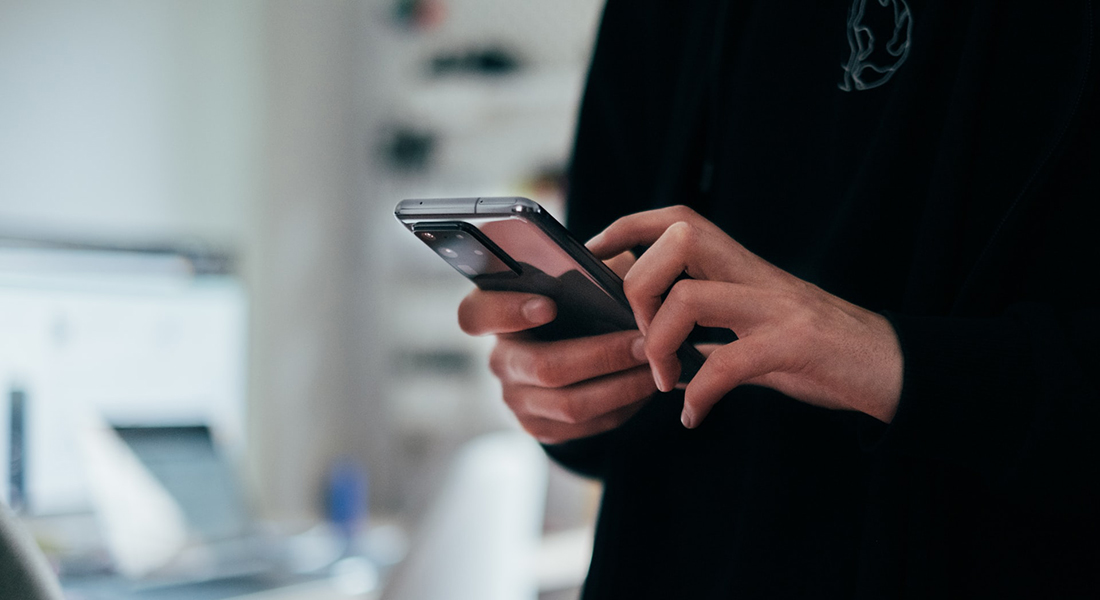Surprising news: Your smartphone can help strengthen your memory
The use of digital devices such as smartphones could help improve memory skills rather than causing lazy and forgetful behavior. This discovery has been made by an international research team with Danish participation.

They blink and beep in almost every Danish home. In fact, according to Statistics Denmark, 93 percent of all Danish households have one or more smartphones that can remind family members about tasks, events or appointments. But how does it really affect our ability to remember when we let devices remind us of tasks in everyday life?
Previous research has indicated that we humans can be affected by "digital dementia" – that our brain's ability to store information can deteriorate when we let our smartphone and other digital aids keep track of things.
However, a new study shows that the opposite could also be the case: Storing important information on our digital devices can relieve our memory, which can then be used to remember other things we would otherwise have forgotten.
The brain turns to other content
The researchers behind the study, published in the 'Journal of Experimental Psychology: General', developed a memory task that was carried out on a tablet or computer. The task was solved by 158 volunteers aged 18 to 71.
The participants were shown up to 12 numbered circles on the screen and had to remember to drag some of these to the right side of the screen and others to the left. The number of circles they remembered to drag to the correct side determined their payment at the end of the experiment. Some circles were marked ‘high value’, meaning that they would get a 10 times higher reward for getting those right compared to the low-value ones.
Participants completed this task 16 times. In half of the experiment, they had to rely on their own memory to remember where the circles should be dragged. In the other half, they were allowed to set reminders on the digital device.
The results showed that the participants tended to set reminders to help them to remember the high-value circles. And when they did, their memory for those circles improved by 18 %. At the same time, their memory for low-value circles improved by 27 % - even when they had never set any reminders for them.
"We were interested in how storing information on digital devices can affect memory", says the Danish member of the research team, Dawa Dupont, PhD student at the Department of Psychology at the University of Copenhagen.
"We found that when people had the opportunity to use a digital device, the tool helped them to remember the information they had saved. Surprisingly, however, we found that this also improved people's memory for information that was never saved.”
This, according to the researcher, is because the use of digital devices changed the way people used their memory to store high- versus low-value information.
“When people had to remember by themselves, they used their memory capacity to remember the most important information. But when they could use a digital device, they stored the most important information on the device and used their own memory to remember less important information”, explains Dawa Dupont.
Remember backup!
However, the study also showed a potential downside of using digital reminders.
“When the reminders were removed, the participants remembered the low-value circles better than the high-value ones. This shows that the participants had entrusted the information about the high-value circles to their digital devices and then forgot about them,” says Dawa Dupont.
Nevertheless, the Danish researcher concludes that external memory tools work - and do not necessarily cause 'digital dementia'.
"When we let digital devices remember things for us, the brain has more resources to remember other information. The use of a digital tool can thus improve our memory for information that we have not saved electronically," says Dawa Dupont and elaborates:
“But we must remember to back up the most important information. If a memory tool fails, we could be left with nothing but less important information in our own memory,” concludes Dawa Dupont.
He emphasizes that the study was designed to investigate general principles of memory rather than focused specifically on smartphones. While researchers expect that the findings could relate to smartphones just as much as any other memory device, future research would need to be conducted specifically on smartphones to further understand their impact on memory.
The research project is supported by an ESRC grant and a grant from the Independent Research Fund Denmark.
You can read the study here.
Contact
Dawa Dupont
PhD student, Department of Psychology
Mail: dd@psy.ku.dk
Phone.: +45 28 26 30 97
Simon Knokgaard Halskov
Press and communications officer
Mail: sih@samf.ku.dk
Phone: +45 93 56 53 29
